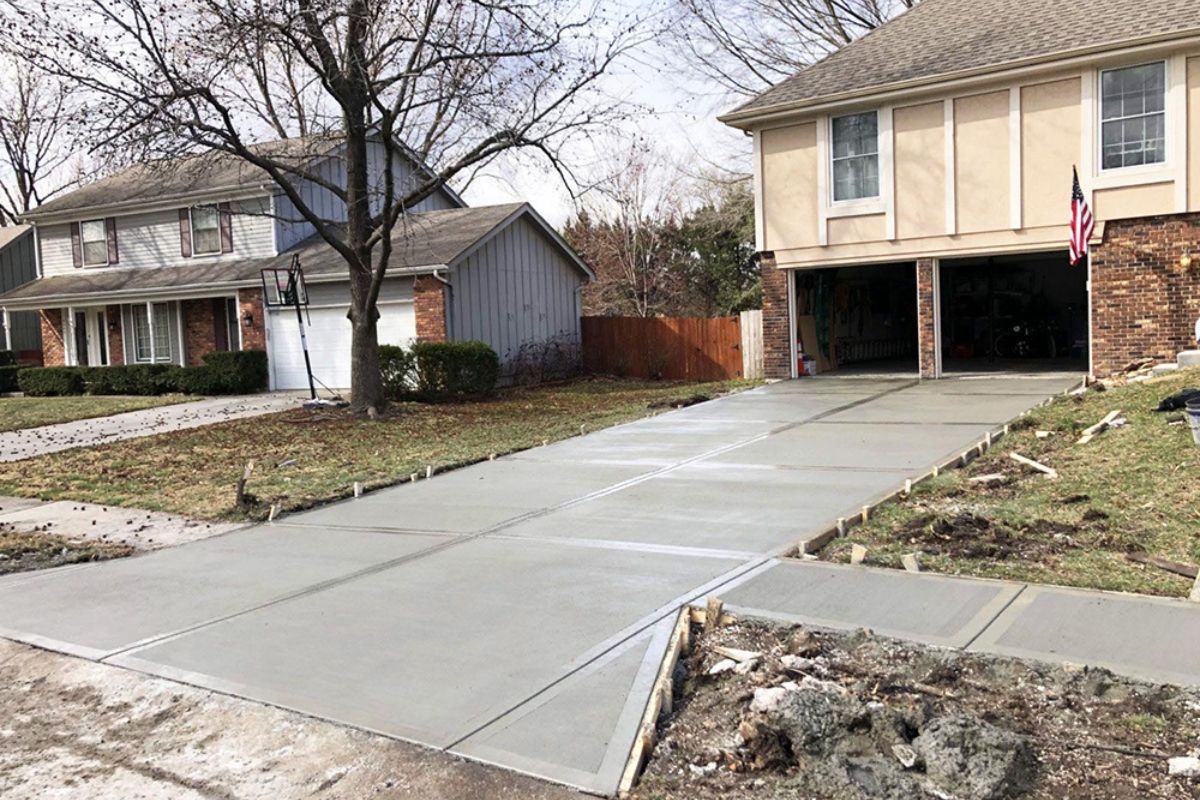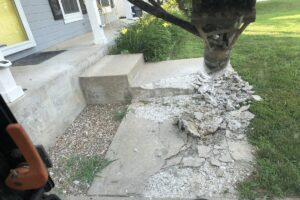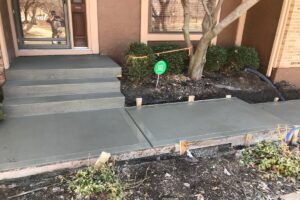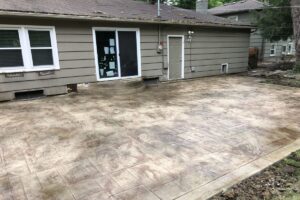Knowing the difference between asphalt and concrete is likely to become an important decision if it’s time to replace your driveway. Both materials have the same basic composition but use different adhesives that make a difference.
Both of these options are popular and durable. However, you’ll need to know about important differences in these driveway materials to make a more informed decision.
Do Asphalt and Concrete Both Require Sealing?
Asphalt requires re-sealing a few months after pouring and curing to maintain its lifespan. Re-sealing will be a necessity, rather than an option, every three to five years.
Re-sealing helps reduce fading in concrete driveways but is not a necessity in the same way it is for asphalt. However, in the case of tinted concrete, sealing will help provide a greater degree of protection against fading.
Is There a Difference Where Climate is Concerned?
The difference between asphalt and concrete also matters when it comes to climate and weather-related concerns. Asphalt, for example, often softens during times of high heat and later hardens during cooler weather, which can cause cracking.
Buckling, cracking, or heaving can be common in concrete during the colder weather due to a cycle of expansion and contraction. Ice and snow may take longer to melt when falling on concrete. Natural de-icers like rock salt are a safer alternative to chemical-based de-icers that can harm your driveway.
Does Asphalt or Concrete Offer More Choices?
Of the two popular options, asphalt comes in a dark gray or black color. This color is one of the reasons many refer to asphalt as “blacktop.”
Although concrete features a natural light gray color, it is easy to change the concrete color through tinting. You can opt for a textured finish or have designs stamped into the concrete to give it a more distinctive look.
There are many possibilities for concrete, including but not limited to:
- Brick or stone appearances
- Replicating your home’s colors
- Stamping for custom pictures
If you opt for concrete, you can also use this as part of a bigger project to give the front of your house a whole new look. For example, you could also have new sidewalks or walls surrounding a garden put in.
Is Asphalt or Concrete More Durable?
Concrete is more durable than asphalt by a significant degree. One of the things that attract many people to concrete is that it will usually last a minimum of thirty years. However, concrete has shown an ability to last fifty years or more when a homeowner has a regular maintenance cycle.
When you opt for concrete, you aren’t going to be worrying quite as much about maintaining concrete as you would asphalt. You may require repair at some point, but the situation needs to be pretty serious for a more extensive repair.
Why is Concrete the Clear Choice for Many Homeowners?
Concrete’s increased durability over asphalt is a clear choice for many. Even though concrete is less flexible than asphalt during colder weather, a more durable material overall is the better solution for these homeowners.
Although you can always seal or re-seal a concrete driveway when you want, it is not a firm requirement. If you keep your concrete power-washed twice a year and free from grease, you should get years of use from your concrete.
The only limitation to what you can do for colors and designs with concrete is your imagination. A few of these possibilities might include:
- Design engraving
- Custom finishes
- Color tinting
- Pattern stamping
Concrete is the material of choice for many homeowners, with sufficient reason to justify this choice. Johnson Concrete is happy to discuss the difference between asphalt and concrete with you, contact us today for more information.




